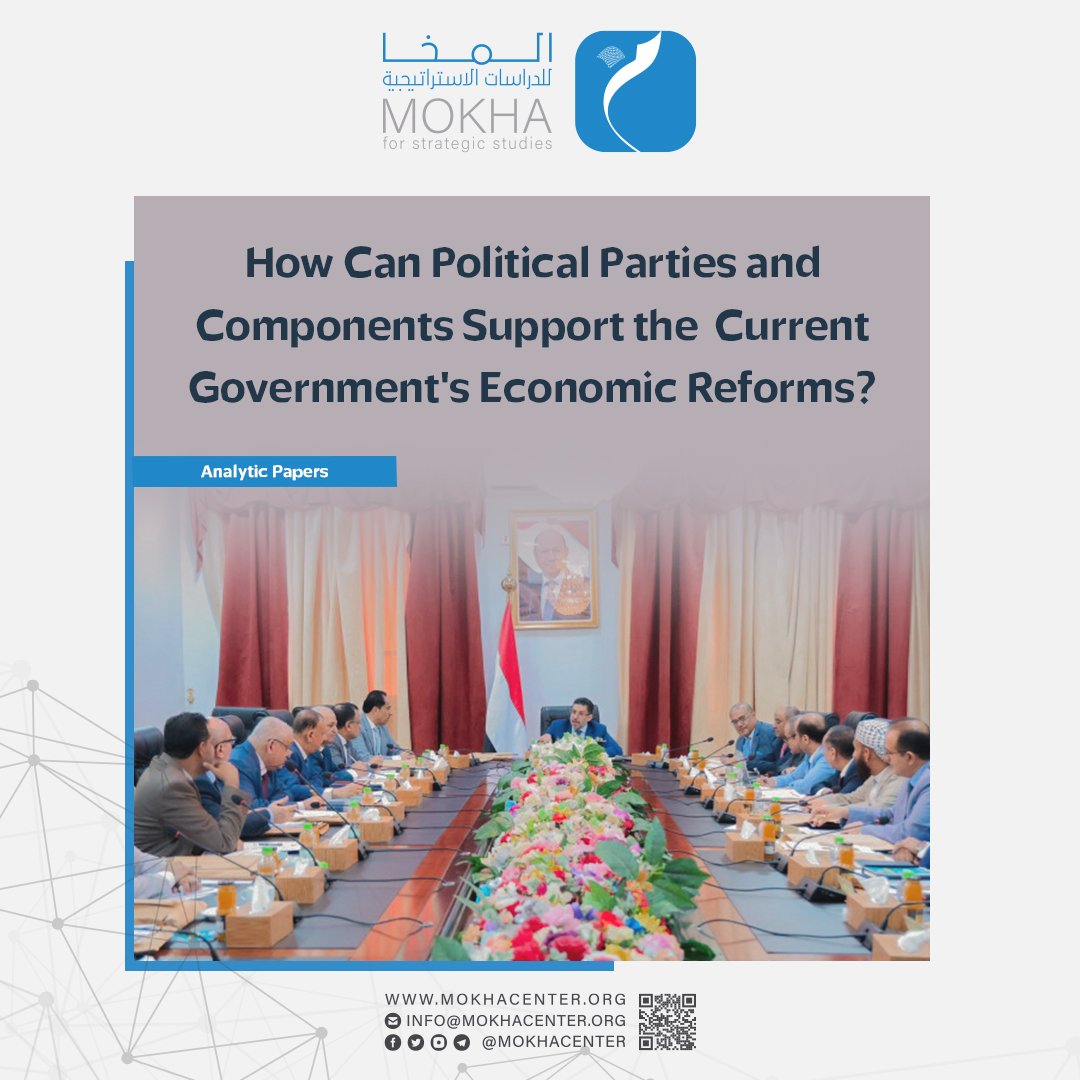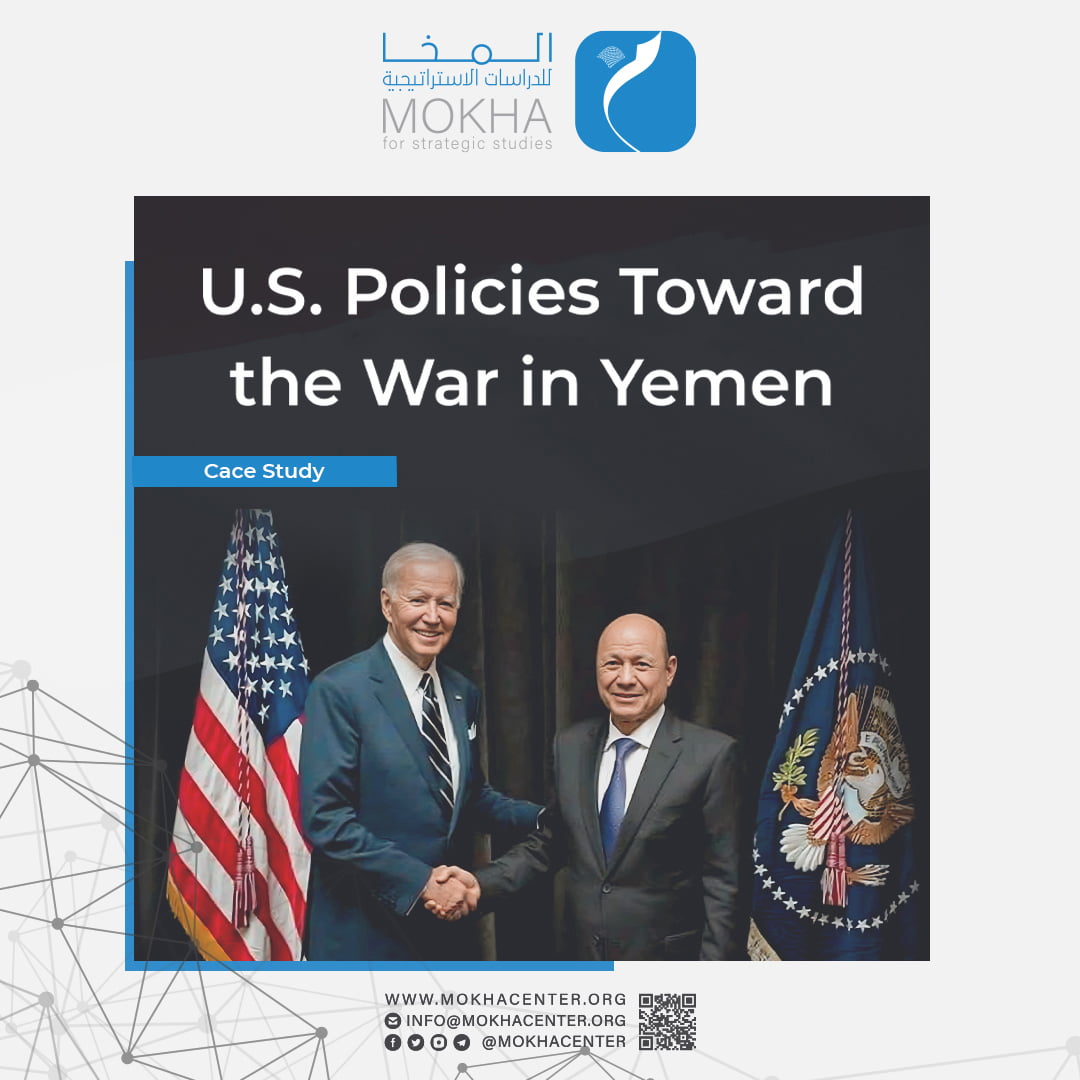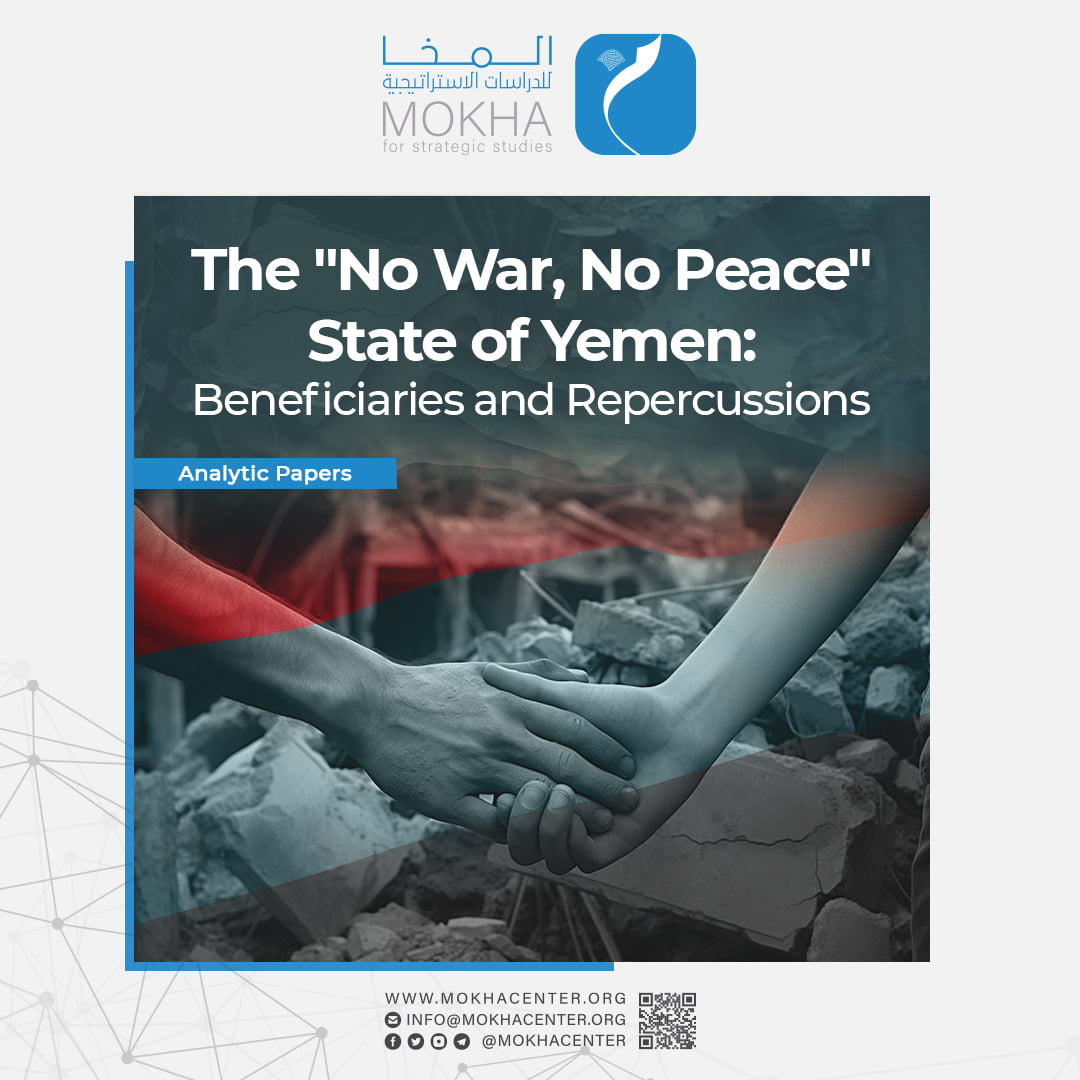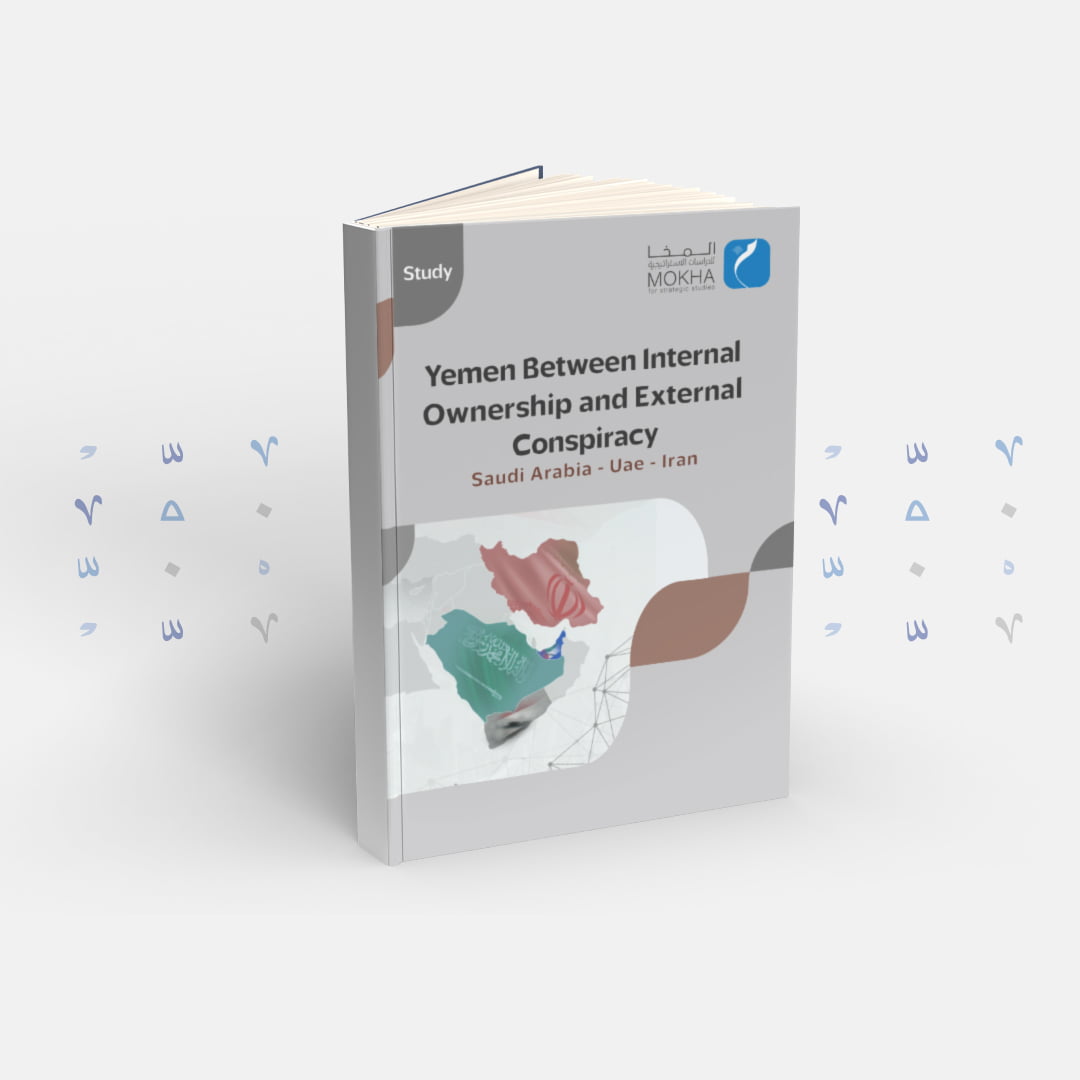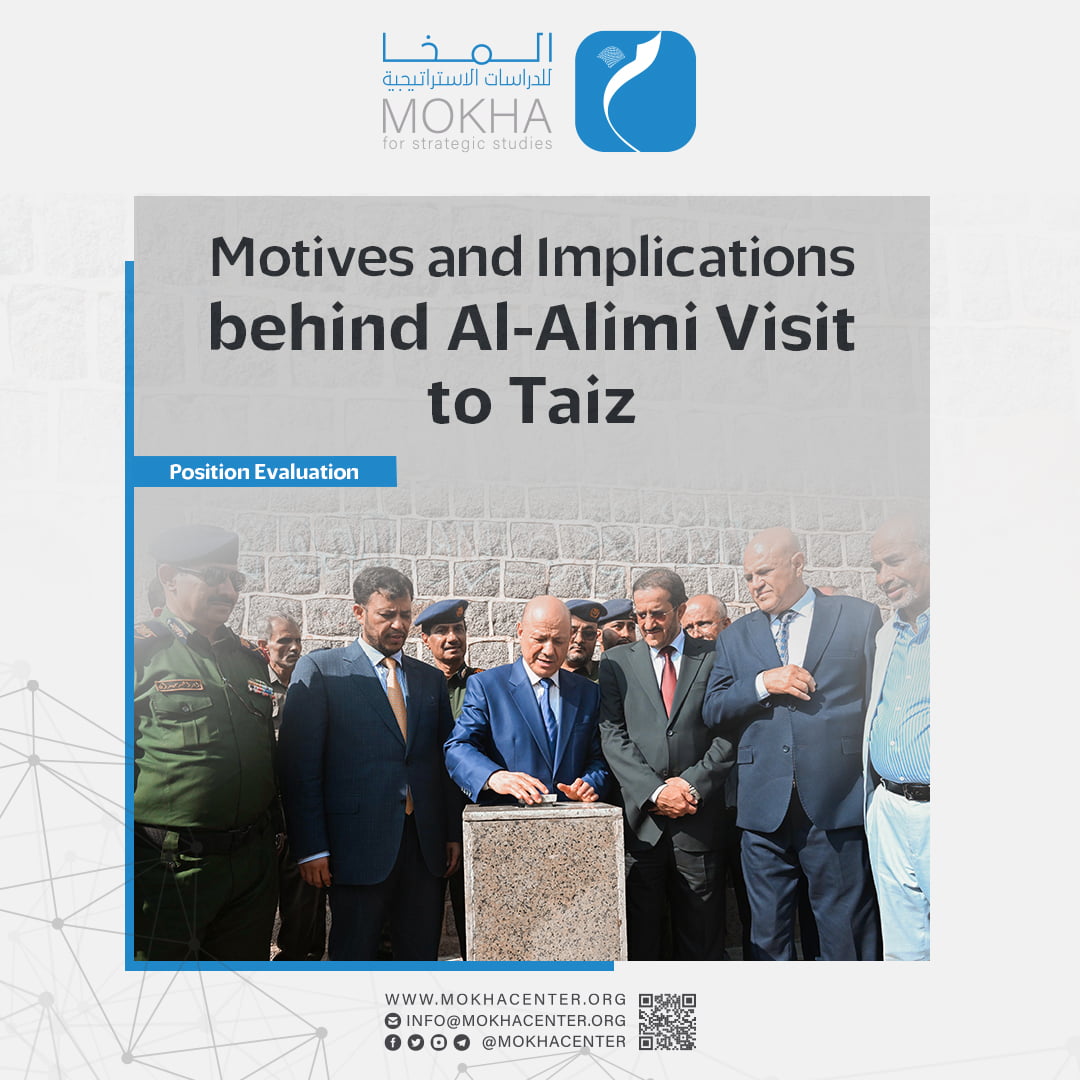The Obstructed Authority … A reading of the present and future of the Yemeni parliament
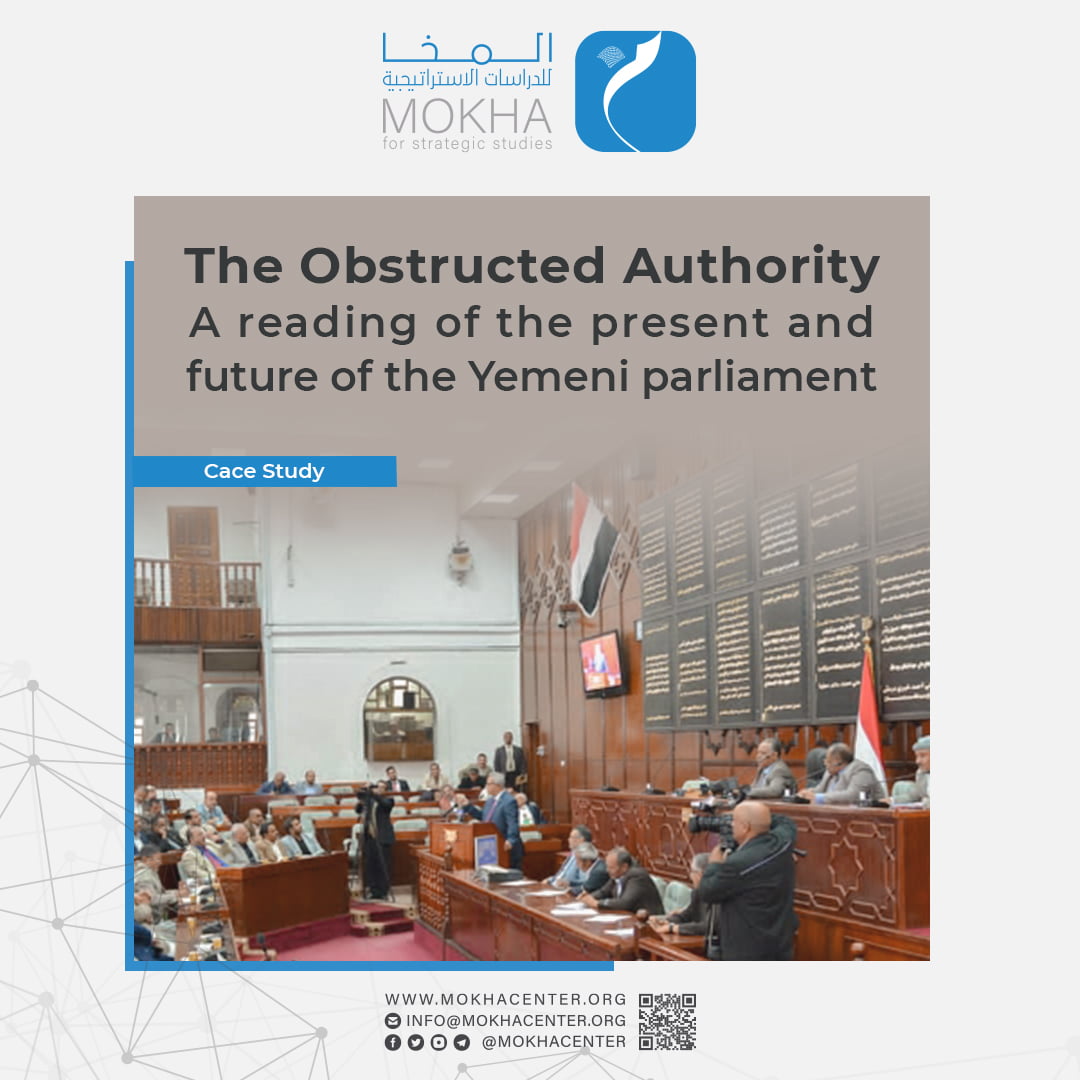
| Getting your Trinity Audio player ready... |
Introduction:
On September 10, 2023, the Parliament — a pivotal component of the legitimate governing authority — convened for a consultative virtual meeting. This meeting coincided with the conclusion of a two-week deadline set by the Council’s presidency for the government to respond to the report submitted by the council’s fact-finding committee. This report addressed issues of corruption in such sectors as oil, electricity, communications and finance. The release of the committee’s report and the Council’s presidency memorandum ignited a political discourse and debate between the council and the government.
The call for a consultative meeting by the Parliament brought forth a diversity of perspectives, resurfacing the Parliament’s significance after years of being marginalized during the war. This consultative meeting underscored the council’s potential influence on the political landscape and its capacity to play a substantial role in combating government corruption.
This paper will explore the existing opportunities for the Parliament to enhance its role in oversight and its ability to influence government performance, with a specific focus on curbing corruption.
Systematic Neglect:
Despite the relocation of a substantial portion of Parliament members from areas under Houthi influence, Yemeni President Abd Rabbuh Mansour Hadi did not accord Parliament the attention and respect it deserved. He failed to recognize it as an institution that could bolster his position and serve as a potent tool against the Houthi insurgency. Rather than actively engaging the council in addressing national matters, Hadi appeared to harbor concerns that the council might make decisions that curtailed his authority. Hadi neither sought to convene the council nor facilitated its meetings, all without providing sufficient constitutional or legal justification, based on his constitutional and legal responsibilities. Hadi also struggled to resolve his stance on the Southern Transitional Council, an entity that opposed the reinstatement of legitimacy and governmental authority in the southern regions, whether those were already liberated or those untouched by Houthi rebels, such as Mukalla and Seiyun, for instance.
Furthermore, the “Arab Coalition,” specifically the United Arab Emirates, was apprehensive that the council could become a robust voice restraining actions taken by coalition countries. The coalition lost a crucial ally that could have supported its initiatives and conveyed the multifaceted Yemeni crisis to the international community. The council could have elucidated the rebellion against state institutions, emphasizing its detrimental effects on the people, the nation and the wider region. It would have represented the Yemeni populace and embodied their collective will.
This pattern persisted during the era of the Presidential Leadership Council, where Parliament remained marginalized despite the relocation of state institutions to the interim capital of Aden. The formation of the leadership council was ostensibly justified by the need to reestablish state functions in Aden. Moreover, the birth of the leadership council coincided with the establishment of the Consultation and Reconciliation Commission, creating an appearance of rivalry with the Parliament.
From 2015 to 2023, the legitimate Parliament convened only two sessions. The first was in Sayun in April 2019, primarily to select its leadership, and the second occurred in April 2022, when it conferred constitutional legitimacy upon the Presidential Leadership Council. The glaring absence of Parliament as a legislative and oversight body undoubtedly exacerbated instances of corruption and contributed to the chaos in government operations. As a result, corruption has evolved into a severe threat to the legitimacy of the governing authority.
Absence of other regulatory bodies
The Parliament’s diminishing influence was accompanied by the absence of other regulatory bodies. Appointments were not made for members of both the Supreme Committee for Tenders and Auctions and the Supreme National Anti-Corruption Authority. Additionally, the Central Oversight and Accounting Agency in Aden faced persistent challenges, including a shortage of qualified technical staff and security threats to its personnel. Ineffectiveness, feeble leadership and government infiltration have resulted in the exploitation of its reports for the purpose of pressuring parties targeted by a prominent figure within the Prime Minister’s Office.
A Parliamentary Report Sparks Controversy
Efforts were made by certain Yemeni parties to reinvigorate the Parliament. However, the prospects of the council returning to its temporary capital, Aden, dwindled significantly due to the inability of state leaders, including members of the PLC, to carry out their duties in Aden. This situation was compounded by the UAE’s stance and the transitional council’s rejection of Parliament’s return to Aden and other regions under the legitimate authority’s jurisdiction. Consequently, the Parliament’s activities were largely limited to the initiatives of the council president, the presidency and the individual efforts of some members, primarily through the establishment of parliamentary investigation committees to address various issues.
One of the most noteworthy committees established was the one formed on April 10, 2023, to investigate corruption cases in the electricity, communication, and oil sectors. This committee submitted its report to the council’s presidency on August 26. The report not only assessed the current state of the sectors under investigation but also provided recommendations. These recommendations emphasized the importance of adhering to the constitution and relevant laws when entering into agreements, including the agreement with the Emirati company of “NX” for establishing a new telecommunications company. It underscored the need to safeguard sovereignty and financial resources, ascertain the value of the license, accurately calculate the assets of Aden Net and TeleYemen in line with international standards, and ensure that all structures, facilities and state rights are protected, as mandated by the Communications Law, the Financial Law and the Tax Law.
The committee’s report called for the swift liberation of the telecommunications sector from the control and monopoly of the Houthi group, urging against the exploitation of resources and information. It emphasized that the current situation, which has persisted until now, is a source of shame for successive governments. The report also called for immediate measures to restore and activate the submarine cable (AAE1) in legitimate areas to provide services in line with its intended purpose. Additionally, it urged a comprehensive investigation into the circumstances surrounding the encryption and disruption of the submarine cable, with accountability for those responsible for its disablement, which led to disruptions in public interests, communication networks and information operations.
Speaker of the Parliament, Sultan Al-Barakani, conveyed an even more severe message, expressing deep concern about the extent of imbalances, irregularities and manipulation that had characterized the performance of various government agencies across different sectors. He highlighted the serious repercussions these actions had on people’s lives, public funds and various public activities and services. He noted that such dysfunction had been uncommon in the performance of successive governments. Many of these government agencies failed to adhere to even the most fundamental legal principles in carrying out their duties, often violating the constitution and the law. For example, they disabled the Tenders and Auctions Law, failed to establish the Supreme Tenders Committee and neglected to activate its role. Similarly, the Anti-Corruption Commission failed to provide oversight or accountability, reducing these critical oversight bodies to mere technical committees formed by the government, in clear violation of applicable laws.
The Speaker’s letter demanded accountability for ministers who inappropriately visited the headquarters of companies and their countries, actions inconsistent with the government’s responsibility and the state’s status. Among the mentioned ministers were the Minister of Legal Affairs, the Minister of Oil and the Minister of Transport, all of whom visited these companies and their premises.
Furthermore, the Speaker strongly urged the government to not proceed with the telecommunications company agreement, instead advocating for its cancellation and reconsideration to protect the state’s rights, property and sovereignty. He emphasized the need for swift implementation of the recommendations outlined in the Parliamentary Fact-Finding Committee’s report concerning the sectors of electricity, oil, communications and finance. The government was also urged to promptly inform the council of the actions it intended to take within two weeks from the date of the letter.
On August 21, in an unprecedented move, the government approved an agreement to sell Aden Net Communications Company to a UAE-based company, despite objections from the Parliament, which viewed the agreement as a perilous precedent that jeopardized state property and sovereignty.
Subsequently, on August 28, a member of the PLC, Othman Majali, sent a message to the chairman of the PLC, Dr. Rashad Al-Alimi, demanding an investigation into the Prime Minister and all individuals involved in the matters raised in the Parliament’s report and letter. He also called for the annulment of all agreements and procedures signed by them, which had implications for Yemen’s sovereign wealth and held him responsible for not addressing the council’s concerns.
On September 4, Prime Minister Maeen Abdulmalik held a press conference in response to the letter from Speaker of the Parliament, contending that the formation of the parliamentary committee was “unconstitutional” and “illegal” since it had not been formed by the council or the hall. The Prime Minister claimed that the discussion surrounding the telecommunications company occurred within the context of political polarization rather than within a legal and economic framework. He asserted that the agreement with the Emirati telecommunications company had been thoroughly discussed and voted on, item by item, in the Council of Ministers and was not a secret. Following its approval, it had been presented along with all related documents to the Presidential Leadership Council, which represents the highest authority in the state.
The agreement and subsequent statements made by the Prime Minister, in which he questioned the legitimacy and constitutionality of the Parliament and triggered widespread controversy and sharp criticism from Parliament members. Some of them provided documents and evidence of corruption deals in the technical education and floating electricity sectors, placing responsibility squarely on the Prime Minister.
Invitation to a Parliamentary Meeting
On September 8, the Presidency of the Parliament extended an invitation to its members for a parliamentary session to be conducted via virtual meeting. The majority of members welcomed this invitation, but varying positions emerged, influenced by external factors. The parliamentary bloc loyal to the “Political Bureau,” led by a member of the PLC, Tariq Saleh, initially declined to participate but later reconsidered its stance, with the condition that no decision concerning the telecommunications company be made during the session.
The parliamentary bloc of the Yemeni Socialist Party, comprising three members, declared its refusal to participate in the consultative meeting. They emphasized in a statement that any parliamentary sessions discussing the Fact-Finding Committee’s report should take place within Yemen, following the receipt of the government’s written response to the council’s message. They insisted on these sessions being held in public, in the presence of government representatives and in accordance with the constitutional and legal procedures governing such meetings.
The Nasserist Unionist People’s Organization (bloc) made a similar decision to not participate, citing similar reasons. Two members of the NUPO, Sultan Al-Atwani and Abdullah Al-Maqtari, abstained from participating. In contrast, the third member of the bloc, Muhammad Thabet Al-Asali, disagreed with the NUPO’s decision and expressed willingness to participate in the meeting. He argued that he represents the people, and there are pressing issues that cannot afford political disputes. Al-Asali noted that the council had not been allowed to convene within the country, due to opposition from the Arab coalition and its supporters. Therefore, he saw no issue with holding a consultative meeting via the Zoom platform, as it would not yield any outcomes conflicting with the constitution and the law.
Conversely, an official source within the Speaker of the Parliament’s office expressed regret over the announcement by members of the Socialist Party and Nasserist Organization regarding their lack of participation in the consultative meeting. The source found that their argument did not align with the Constitution and that the law was unfounded, especially since the meeting was meant for consultation purposes only. It aimed to present the proposals of the chairman of the Leadership Council, temporarily delaying the matter of the investigation committee until his return from New York and considering the Prime Minister’s request to postpone the council’s response until September 18. The source underscored the fact that the council had previously convened two consultative meetings in Riyadh — March 31, 2022, and April 3, 2022 — alongside the Riyadh consultations. These meetings saw the participation of all council members, including those who later objected, without any prior objection raised regarding their constitutionality.
Consultative Meeting of the Parliament
On Sunday, September 10, 2023, the Parliament convened a consultative meeting under the leadership of Sultan Al-Barakani, with the presence of Othman Majali, a member of the Leadership Council, and Parliament members. Approximately 65 members attended the meeting, though the vice president of the council, Muhammad Al-Shaddadi, was notably absent. According to an informed source, the members displayed strong enthusiasm in their participation. An official statement from the council explained that the meeting’s agenda centered on addressing the latest developments in the country’s current situation, discussing the overall national landscape, highlighting the priorities for the current stage and outlining the general objectives of the Parliament’s work plan for the upcoming period.
During the meeting, Othman Majali, a member of the Presidential Leadership Council, emphasized the crucial role of the Parliament in carrying out its legislative and oversight duties. He underscored the Parliament’s significance as the institution responsible for safeguarding the constitution, laws and regulations. Majali also commended the valuable observations and recommendations contained in the Parliamentary Fact-Finding Committee’s report.
The Parliament Rediscovers Its Significance
The recent flurry of activities, including the parliamentary committee’s report, the Speaker of the Parliament’s letter to the government, the aftermath of the Prime Minister’s press conference, and the stances of various parties regarding the PLC’s consultative meeting, together with the substantial level of participation and enthusiasm exhibited by members, have showcased the council’s renewed strength and importance. It has demonstrated that the council cannot be sidelined, frozen or have its role diminished. Instead, it possesses considerable influence in shaping the political landscape and overseeing the government’s management of public interests.
Supportive Developments
While acknowledging the existence of major obstacles to the process of reactivating the Parliament, including the position of the UAE and the Transitional Council, which rejects the Parliament’s return to Aden, the difficulties of holding sessions in Sayun, Mukalla or even Ma’rib, the government’s satisfaction with such a matter, and the council’s inability to hold meetings. Through visual applications, due to the texts of its internal regulations, some council members were subjected to polarization between internal and external political forces, the fighting spirit among some of them was weak, the settlement of the financial situations for some of them was connected to their positions, and they slacked to ensure that this is achieved. However, looking at the recent transformations, it appears that they are going in favor of the council. Representatives and supports his role, including:
- The significant increase in corruption indicators and the significant deviation in the performance of the executive authority, part of which was revealed in the report of the Parliamentary Investigation Committee.
- Widespread public discontent due to deteriorating living conditions, a substantial devaluation of the currency and a decline in public services. This discontent is paralleled by rising corruption and a sense of chaos in the country, emphasizing the need for effective governance and accountability.
- The enthusiasm shown by a large number of council members, whether for motives related to their role in this very important stage of Yemeni history or even for personal motives related to resistance to marginalization, in addition to widespread concerns about the possibility of replacing the council with the Consultation and Reconciliation Commission.
- The nature of the stage does not tolerate any further absence of supervisory institutions, and internal pressures and external requirements force the government to activate supervisory councils to exercise their role within its minimum limits, at the very least.
- The pressing international position, especially by the European Union countries, the United State and the International Monetary Fund, conceals the extent of corruption and deviation in the performance of the legitimate government and supports government reform efforts.
- The failure suffered by the Consultation and Reconciliation Commission and the rest of the institutions that were formed to accompany the Presidential Leadership Council. They lost their momentum and their functional role eroded in light of the continuing division among the members of the Presidential Leadership Council.
- The shift in the Saudi position, which, although it seems limited, is of great importance. In light of the polarization between Saudi Arabia and the Emirates, Riyadh has gotten closer to supporting institutions that stand in the face of Emirati trends. The observer notes that the Saudi position is closer in favor of activating the Parliament, in light of the dissatisfaction with the telecommunications company agreement and other matters. The matter does not need to be reminded that Saudi pressures are behind the council sessions being held in Sayun and Aden.
Available Pathways To Enhance The Supervisory Role And Reduce Corruption
Certainly, there are pathways available to strengthen the supervisory role of the Parliament and combat corruption. The recent parliamentary activity has injected dynamism into the political landscape and intensified interactions between state institutions. However, the effectiveness of these efforts will depend on the determination of its members, the cohesiveness of its leadership and the prevailing circumstances. The continuation of a state of ceasefire presents a more favorable environment for reinvigorating the council’s role, particularly since corruption and government performance have become prominent concerns. Conversely, if the situation escalates toward conflict, the focus will shift toward issues related to war and its exigencies. Here are three pathways that can bolster the council’s ability to address corruption issues:
Employing available tools to the greatest extent possible
The current circumstances require the council to activate and work with the available tools, including:
- Continuing to form parliamentary investigation committees, activating their performance and working on their results.
- Organizing meetings of the Presidency of the Council and the heads of the parliamentary blocs, activating them and ensuring the coherence of their positions.
- Referring to cases in which corruption has been proven to the Attorney General and judicial institutions, respectively.
2- Pressure through parallel tools, including:
- Strengthening the relationship of the council and its members with civil society and research centers to implement discussion panels and working sessions on corruption issues raised by the council.
- Raising discussions with the international community and the international parties sponsoring the peace process, especially the International Sanctions Committee, whose mandate includes corruption and the plundering of public funds.
- Raising and discussing corruption issues in the “Yemeni Parliamentarians Against Corruption” Foundation, in which a number of active members of the Council are active, and which is linked to the Arab Parliamentarians Against Corruption and Parliamentarians Against Corruption Foundation.
3- Pressure To Move Inward
The council must invest in the impact resulting from the recent activity and direct pressure toward the PLC and the rest of the parties to make room for a greater role for the council, including meeting in areas of legitimate authority. If the council is able to hold a meeting, it must urgently work on:
- Amending its internal regulations to allow it to hold virtual meetings when necessary.
- Making concessions and agreeing to form permanent committees.
